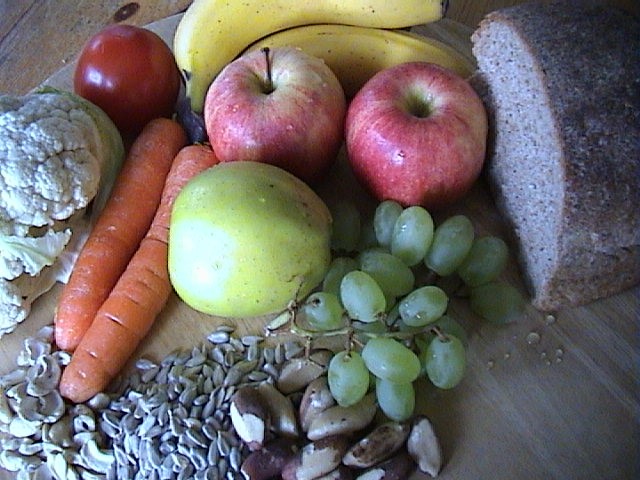
What is Whole Food?
The term 'wholefood' is now universally understood to describe food that is consumed as near as possible to its natural state, with a minimum of processing and freedom from synthetic additives. But where did it originate? A further requirement is that it is grown according to organic principles. It is this that has driven the demand for food that is cultivated without the use of chemical fertilizers, pesticides, and synthetic additives.
The term was first coined in 1946 by the pioneering organic farmer, Frank Newman Turner, who, together with his associate, Derek Randall, established the Producer Consumer Whole Food Society to enable the increasing number of people wishing to obtain organically grown food to purchase it from the farmers and gardeners who were producing it.
In the years immediately after World War Two, the UK government, as part of their efforts to increase food production, offered subsidies for farmers to purchase chemical fertilisers and pesticides to use on their land . A small and determined number of agriculturalists and horticulturalists believed that this would merely boost quantity at the expense of quality and there were also concerns about the long-term health risks to livestock and consumers. F. Newman Turner was one of these, who, on his farm in the county of Somerset in England, was finding that, using the methods of composting advocated by Sir Albert Howard – regarded as one of the founders of the organic movement - he was improving the productivity of his soil and the health of his livestock without resort to synthetic chemicals.
Newman Turner wrote about his experiences in his quarterly magazine The Farmer, 'published and edited from the farm', that he had established in 1946. In the first edition, he wrote:
' We shall address ourselves to the farmer and the townsman alike; to the farmer because we believe he assures the health of the nation, and incidentally of his own future survival, in the degree to which he conforms to the laws of nature in the treatment of his land and livestock.
We address ourselves to the townsman, because it is upon the widespread acceptance and practise of the methods of farming and living which we shall advocate in this journal, that his future well-being depends. It is, therefore, the duty of every citizen to see to it that he gets an adequate supply of whole food, properly produced from naturally fertilised soil, and from animals which are maintained free of disease in the only way that nature intended in the provision of natural food for man and beast. '
It was in the December 1946 edition of The Farmer that the foundation of the Producer Consumer Whole Food Society (WFS) was announced with the support and guidance of Sir Albert Howard, who assisted Newman Turner with the rules and constitution, and was to have been its first president, when the whole organic world was shaken by the news of his death in 1947 at the age of 73.
|
It is the duty of every citizen to see to it that he or she gets an adequate supply of whole food, properly produced from naturally fertilised soil, and from animals which are maintained free of disease in the only way that nature intended in the provision of natural food for man and beast. |
|
F.Newman Turner in The Farmer, 1946 |
It soon became apparent that some form of quality control was necessary to counter the tendency of a few suppliers to advertise their produce as 'organically grown' or 'free from chemicals' without any guarantee that this was the case. Newman Turner therefore conceived the idea of a 'Compost Certificate of Registration' which evolved into the WFS's proposal of a 'Whole Food Mark'. The committee defined whole food as:
· 'Mature produce of field, orchard, or garden, without subtraction, addition, or alteration,
· food grown from seed without chemical dressing
· food grown in fertile soil manured solely with animal and vegetable wastes and compost therefrom, and ground rock,
· food grown without chemical manures, sprays, or insecticides'
The notion of a Whole Food Mark underwent an elephantine gestation. I have described, in Against the Grain (chapter 8) , how the WFS and other groups with similar objectives such as the Soil Association, The Albert Howard Foundation (which had been set up after Sir Albert's death, with Lady Howard as president), the Biodynamic Agriculture Association, and The Men of the Trees (represented by its founder, Richard St Barbe Baker), held several meetings to try to establish a Mark. But none of them had the resourcs to carry it through at the time; it was not until the 1960s that the Soil Association revived the idea and established its own organic mark.
It was, however, F.Newman Turner who helped to sow the seeds of the wholefood revolution.
RNT
October 2022
You cn read more about The Farmer and F.NewmanTurner's other publications in Against the Grain: The life of Frank Newman Turner (2022) available from Austin Macauley Publishers, Amazon, and leading booksellers, or from AcresUSA, Greely, Colorado.
Post Views : 275